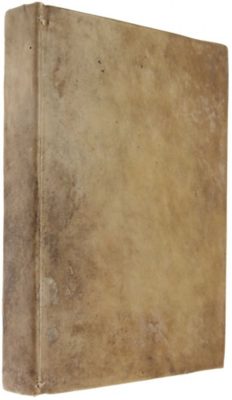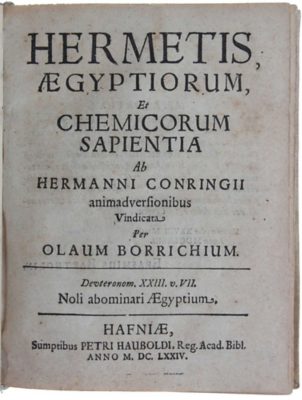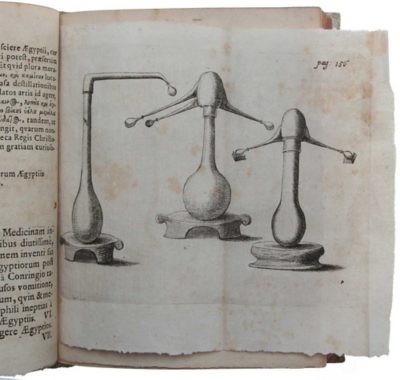Olaus Borrichius (Ole Borch): 'Hermetis, Aegyptiorum, et Chemicorum Sapientia ab Hermanni Conringii animadversionibus Vindicata' (Copenhagen: Sumptibus Petri Hauboldi, Reg. Acad. Bibl., 1674)
acquired in 2022
acquired in 2022
Recently arrived in the collection of the Iron Library, this volume was the first and only edition of one of the most important alchemical treatises by Danish polymath Ole Borch (1626-1690). It brings to the collection a rare and comprehensive work about the early history of alchemy.
Ole Borch, whose name is frequently latinized to Olaus Borrichius, became known for his work as a scientist, physician, grammarian, and poet, serving also as Royal Physician at the Danish Court. He travelled widely in Europe, meeting and exchanging with many of the most significant scholars of his time. Among these was Robert Boyle (1627-1691), works of whom are also to be found in the Iron Library's collection. However, unlike Boyle – whose writings are considered among the most important in establishing the language and method of early modern chemistry – Borch wrote from the perspective of an old tradition called hermetism.
Hermetism was a surviving branch of medieval science that incorporated alchemy, theosophy and astrology. Though symbol laden and mystic, its practitioners nonetheless made valuable contributions to the development of chemistry and physics. For instance, the hermetic aim to create a "magic" seal that could keep gases from escaping vessels has a legacy in the modern use of the word "hermetic" to describe anything that is airtight.
Borch's volume was written in response to Hermann Conring (1606-1681) and as part of a literary salvo in an ongoing conflict over the relevance of hermetism and the work of Swiss scholar Paracelsus (1493-1541). In compiling it, he not only wrote a passionate defense of hermetism, but an expansive historical treatise on the work of its earliest scholars, from the Egyptian Zosimos of Panopolis (late 3rd to early 4th centuries BCE) through to medieval writers like Nicholas Flamel (1340-1418).
Not only is the book rare, it is also one of the few surviving copies that still contains one of the earliest print illustrations of three types of retorts – the earliest known distilling apparatus – which was copied from an ancient manuscript by Zosimos. The origin and development of distillation equipment of this sort was a vital step toward the production and refining of polymers, the evolution of polymer chemistry and, eventually, plastics. For the Iron Library, this is therefore a very significant addition, as it provides literature on what might be called the ancient history of the materials sciences and plastics, which form a substantial portion of the library's holdings.
 Don't judge a book by its cover: the inconspicuous parchment binding (Image: Sophia Rare Books, Copenhagen)
Don't judge a book by its cover: the inconspicuous parchment binding (Image: Sophia Rare Books, Copenhagen)
 The title page (Image: Sophia Rare Books, Copenhagen)
The title page (Image: Sophia Rare Books, Copenhagen)
 The oldest print reproduction of the oldest known depiction of distillation equipment (Image: Sophia Rare Books, Copenhagen)
The oldest print reproduction of the oldest known depiction of distillation equipment (Image: Sophia Rare Books, Copenhagen)